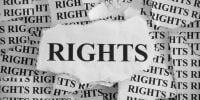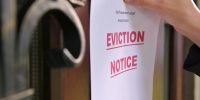Last Updated on March 18, 2024 by Kelvin Nielsen
If you are a tenant in Florida, you have certain rights and protections under the law. One of those protections is against wrongful eviction. A wrongful eviction occurs when a landlord forces a tenant out of their rental property without following the proper legal procedures.

In Florida, a landlord cannot evict a tenant without first providing notice and going through the court system. The landlord must have a valid reason for the eviction, such as non-payment of rent or violation of the lease agreement.
If the landlord does not follow these procedures, the eviction is considered wrongful and the tenant may have legal recourse.
Related Posts:
- How to Remove Eviction from Record in Florida: A Step-by-Step Guide
- How to Stop or Delay an Eviction in Florida: Tips and Strategies
- Can You Evict a Disabled Person in Florida? What to Know
Understanding Wrongful Eviction
If you are a tenant in Florida, you have certain rights that protect you from being wrongfully evicted. Understanding what constitutes a wrongful eviction can help you protect your rights and avoid being illegally removed from your home.
Legal Definition and Grounds
Under Florida law, a wrongful eviction occurs when a landlord violates a tenant’s right to possession of their rental unit. This can happen in a variety of ways, such as by illegally changing the locks, shutting off utilities, or physically removing the tenant’s belongings.
A wrongful eviction can also occur if the landlord terminates the lease without valid grounds, such as failure to pay rent or violating the terms of the lease.
Common Forms of Wrongful Eviction
Some common forms of wrongful eviction in Florida include illegal evictions, retaliatory conduct, and prohibited practices. Illegal evictions occur when a landlord takes action to remove a tenant without following the proper legal procedures.
Retaliatory conduct occurs when a landlord seeks to evict a tenant in retaliation for exercising their legal rights, such as reporting code violations or requesting repairs. Prohibited practices include discrimination based on factors such as race, gender, or disability.
To protect yourself from wrongful eviction, it is important to know your rights as a tenant under Florida statutes. If you believe that you have been wrongfully evicted or are facing eviction, it is important to consult with an experienced attorney who can help you understand your legal options and protect your rights.
Tenant Rights and Protections
As a tenant in Florida, you have certain rights and protections under the law. In the event of a wrongful eviction, you may be able to take legal action to protect your rights.
Statutory Notice Requirements
Before a landlord can evict you, they must provide you with a written notice of their intention to terminate your tenancy. This notice must include specific information, such as the reason for the eviction and the date by which you must vacate the property.
Tenant’s Remedies and Defenses
If you believe that your landlord has wrongfully evicted you, you may have a number of remedies and defenses available to you. For example, you may be able to challenge the eviction in court or seek injunctive relief to prevent the landlord from locking you out of the property.
Prohibited Landlord Actions
Under Florida law, landlords are prohibited from taking certain actions against tenants, such as shutting off utility service or removing outside doors, windows, or walls. If your landlord has engaged in any of these prohibited actions, you may be able to take legal action to protect your rights.
Overall, it is important to understand your rights as a tenant in Florida and to take action if you believe that your landlord has wrongfully evicted you. By working with an experienced attorney and understanding the eviction process, you can protect your rights and ensure that you are not unfairly removed from your home.
Sources: FL Statutes Chapter 83 Part II, Landlord & Tenant Handbook,

Hi, I’m Kelvin Nielsen, an experienced landlord and accomplished real estate lawyer. My focus is on answering your questions about renting in the hopes of making your life as a renter or a landlord a bit easier.







